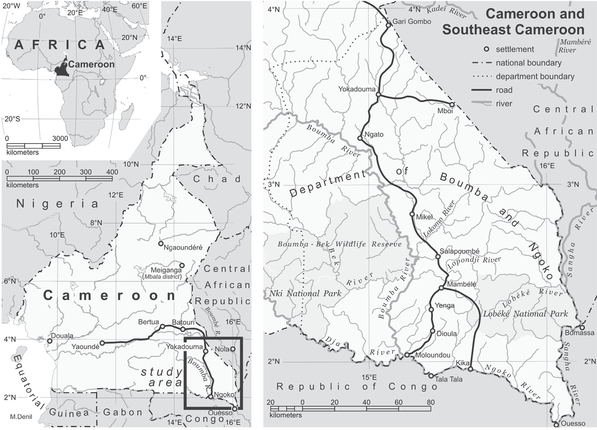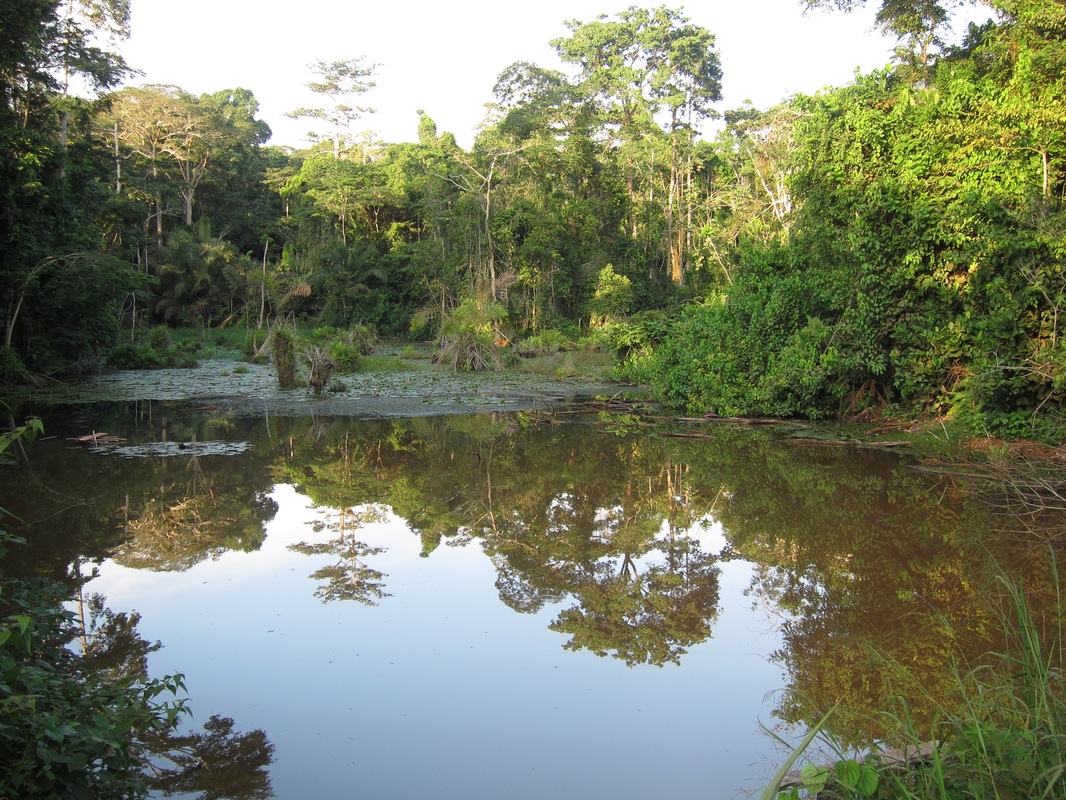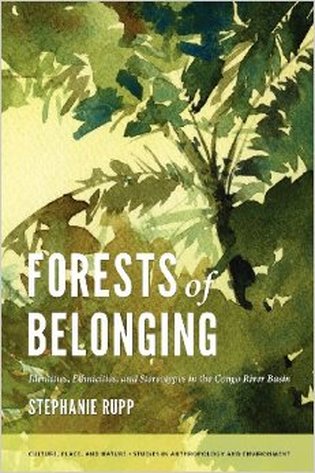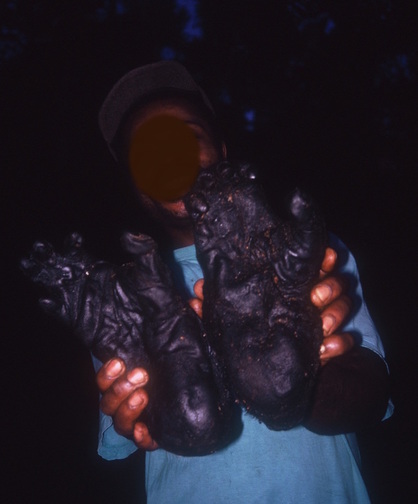Congo River Basin
|
Lobéké Forest Region, Southeastern Cameroon
I continued to pursue my interest in the interfaces between culture and nature, economy and ecology, situating my doctoral work in the Lobéké Forest of southeastern Cameroon. I have conducted ethnographic research among forest communities in the Lobéké Forest region since 1995, with twenty-six months of doctoral research from 1995-1999. My research investigates relationships among four overlapping ethnic groups in order to understand their social, ethnic, and stereotyped identities, and to analyze the ways in which these identities are variably mobilized through policies of conservation, development, missionization, and nationalism. I continue to return to southeastern Cameroon for field research during breaks in the academic calendar.

Lobéké Forest region of southeastern Cameroon. The principle focus of my field work is the village of Dioula, though I work throughout the region. (Rupp 2011: 20)
Forests of Belonging
|
|
Relations between People and
Non-Human Primates Emerging from my research on dynamics of belonging that transcend ethnic categories and bridge categories such as culture and nature, my research includes relations between forest peoples and the animals that share the forest with them. For forest communities in the Congo River basin, boundaries between humanity and animality are substantially more flexible than such categories in Western thought, allowing people to transform themselves into animals and to engage in dynamic social interactions with animals. I have been examining stories of social relations between forest people of the Congo River basin and charismatic species such as great apes (chimpanzees and gorillas) and elephants. Accounts of such engagements open space for debate among forest people about (in)appropriate engagements between people and animals, and relations between different kinds of people. Narratives of relationships between people and great apes also illustrate the relative porosity of conceptual boundaries between human beings and animals, contributing to social science literature that analyzes engagements between human and non-human primates. |


